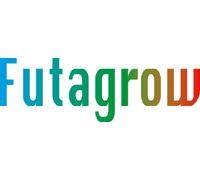New system for sustainable vegetable cultivation
Intensifying greenhouse production in a sustainable way.

The system is based on 5.6 short tomato cultivations per year, during which nine clusters per plant are produced (50 clusters per year). Between the gutter rows with the existing crop, the young plants grow, which makes a 365 days a year production possible. The cultivation takes place in an oxygen -rich film of water, eliminating the need for substrate. The nutrient composition may be adjusted at any time of the day and stage of the cultivation.
Advantages Futagrow
Futagrow intensifies production, with more efficient use of fewer resources. Changing the crop several times a year ensures healthy young plants and gives opportunities for a more market-oriented approach (grow different varieties for specific periods or events). Futagrow makes it possible to produce 365 days a year resulting in an increase of more than 20%.
With Futagrow, crops are grown on oxygen-rich water; mineral wool is no longer used as the medium for root systems. An extra advantage of growing on water is that fertilizers can be given very precisely, enabling nutrition to be adjusted to the crop's needs and reducing the use of fertilizers considerably.
Futagrow is based on the C2C principle: all waste is bio-degradable. Traditional systems produce large quantities of waste: plastics, plastic rope (for stalks) and mineral wool mats that are produced using energy-intensive methods. With the Futagrow system the entire crop, including roots and support, can serve as a basis for bio-based economy, or at least be fully bio-degradable. The waste becomes available year-round, instead of once a year.
The carbon footprint of tomato cultivation is reduced by 25% in comparison to current Dutch cultivation.
Futagrow gives a positive change to the entire production chain, where the grower of young plants is in production year round and the opportunities for retail are numerous.

